
John Wilkes Booth was an American stage actor who assassinated United States President Abraham Lincoln at Ford's Theatre in Washington, D.C., on April 14, 1865. A member of the prominent 19th-century Booth theatrical family from Maryland, he was a noted actor who was also a Confederate sympathizer; denouncing President Lincoln, he lamented the then-recent abolition of slavery in the United States.
Sic semper tyrannis is a Latin phrase meaning "thus always to tyrants". In contemporary parlance, it means tyrannical leaders will inevitably be overthrown. The phrase also suggests that bad but justified outcomes should, or eventually will, befall tyrants. It is the state motto of Virginia.

Edwin Thomas Booth was an American stage actor and theatrical manager who toured throughout the United States and the major capitals of Europe, performing Shakespearean plays. In 1869, he founded Booth's Theatre in New York. He is considered by many to be the greatest American actor of the 19th century. However, his achievements are often overshadowed by his relationship with his younger brother, actor John Wilkes Booth, who assassinated the 16th president of the United States, Abraham Lincoln.

Junius Brutus Booth was an English-born American actor. He was the father of actor John Wilkes Booth, who assassinated President Abraham Lincoln. His other children included Edwin Booth, the foremost tragedian of the mid-to-late 19th century, Junius Brutus Booth Jr., an actor and theatre manager, and Asia Booth Clarke, a poet and writer.

Ford's Theatre is a theater located in Washington, D.C., which opened in 1863. The theater is best known for being the site of the assassination of Abraham Lincoln. On the night of April 14, 1865, John Wilkes Booth entered the theater box where Lincoln was watching a performance of Tom Taylor's play Our American Cousin, slipped the single-shot, 5.87-inch derringer from his pocket and fired at Lincoln's head. After being shot, the fatally wounded Lincoln was carried across the street to the nearby Petersen House, where he died the next morning.

John Sleeper Clarke was a 19th-century American comedian and actor.

Agnes Booth, born Marian Agnes Land Rookes, was an Australian-born American actress and in-law of actors Junius Brutus Booth, Edwin Booth, and John Wilkes Booth, the assassin of Abraham Lincoln.
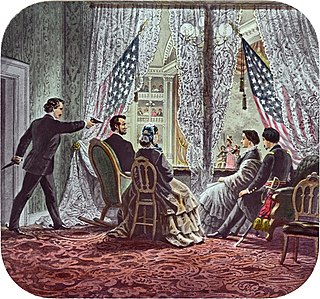
On April 14, 1865, Abraham Lincoln, the 16th president of the United States, was shot by John Wilkes Booth while attending the play Our American Cousin at Ford's Theatre in Washington, D.C. Shot in the head as he watched the play, Lincoln died of his wounds the following day at 7:22 am in the Petersen House opposite the theater. He was the first U.S. president to be assassinated. His funeral and burial were marked by an extended period of national mourning.
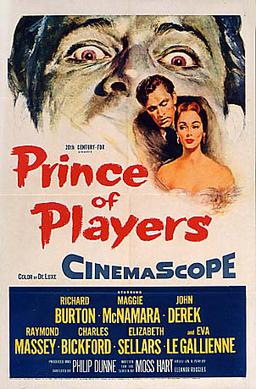
Prince of Players is a 1955 20th Century Fox biographical film about the 19th century American actor Edwin Booth. The film was directed and produced by Philip Dunne from a screenplay by Moss Hart, based on the book by Eleanor Ruggles. The music score was by Bernard Herrmann and the cinematography by Charles G. Clarke. The film was made in CinemaScope and in DeLuxe Color.

Asia Frigga Booth Clarke was a 19th-century American writer.

Junius Brutus Booth Jr. was an American actor and theatre manager.

Sallie (Sally) Partington was an American Civil War era actress born in May 1834 at No. 28 High Street, Islington, England. She worked with many famous actors of the era, including John Wilkes Booth. During the American Civil War she was considered "the toast of Richmond" and was a great source of inspiration and encouragement to Confederate soldiers, ending many of her stage performances with a salute to the Confederacy. Partington was also well known for her performance in the popular Confederate play the Virginia Cavalier in which she performed the song "Southern Soldier Boy", written by Confederate Captain G. W. Alexander.

The first theatre in New York City to bear the name The Winter Garden Theatre had a brief but important seventeen-year history as one of New York's premier showcases for a wide range of theatrical fare, from variety shows to extravagant productions of the works of Shakespeare. Initially known as Tripler's Hall or Metropolitan Hall, it burned down in 1854 and was rebuilt as The New York Theatre. It rose from the ashes under different managers, bearing various names, to become known as one of the most important theatres in New York history. It nearly burned again in November 1864, in plot hatched by Confederate sympathsizers, and burned to the ground a second time in 1867.
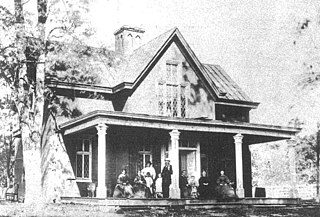
Tudor Hall is a historic home located at Bel Air, Harford County, Maryland, United States. It is a 1+1⁄2-story Gothic Revival cottage built of painted brick. The house was built as a country retreat by Junius Brutus Booth (1796–1852) from Plates 44 and 45, Design XVII, of The Architect, by William H. Ranlett, 1847. However, Booth never lived in Tudor Hall, because he died before it was completed. His son Edwin Booth lived there only briefly on his return from California before he moved the family back into Baltimore. But his other son, John Wilkes Booth, lived there with his mother, brother Joseph, and two sisters from December 1852 through most of 1856.
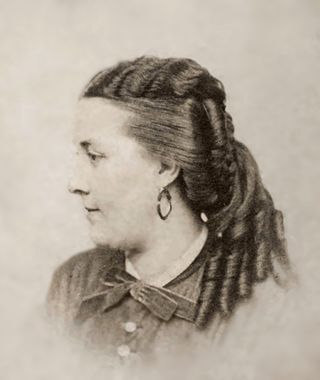
Lucy Lambert Hale was the daughter of U.S. Senator John Parker Hale of New Hampshire, and was a noted Washington, D.C., society belle. She attracted many admirers including Oliver Wendell Holmes Jr., Robert Todd Lincoln; and stage actor and presidential assassin John Wilkes Booth, to whom she was secretly engaged. Lucy's photograph was found in Booth's pocket after Sergeant Boston Corbett mortally wounded Booth 12 days after he assassinated Abraham Lincoln.
Booth (actor) may refer to:
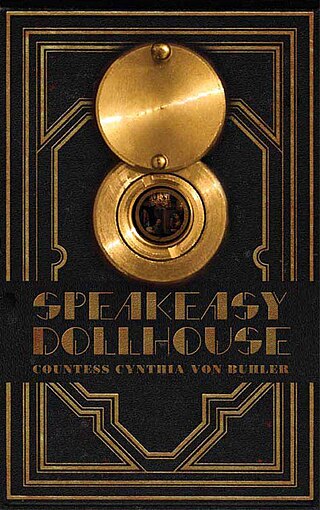
Speakeasy Dollhouse is a series of immersive plays based on Cynthia von Buhler's investigations of mysterious deaths in site-specific historic locations. Original funding for the project was obtained via Kickstarter in 2011. The plays are currently produced by Russell Farhang and Cynthia von Buhler's production company, Smoosh & Smoosh Inc. The Bloody Beginning opened in New York City in 2011. The Brothers Booth ran in 2014. Ziegfeld's Midnight Frolic opened in Spring 2015.

Benedict DeBar (1812–1877) was a prominent American actor-manager. He is associated with operating a major theater in St. Louis, and best known for portraying the role of Falstaff. He was also connected by marriage with the Booth family of actors.
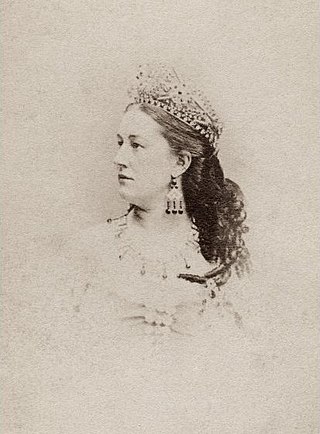
Jean Haskell Hosmer was an American actress and tragedienne who reached the zenith of her career directly following the American Civil War, and is associated through her career with actor and Lincoln assassin John Wilkes Booth along his brother Edwin Booth.

Edwina Booth Grossman was an American writer and the daughter of Shakespearean actor Edwin Booth. In 1894, she published the book Edwin Booth: Recollections by His Daughter, Edwina Booth Grossman, and Letters to Her and to His Friends in an effort to protect her father's legacy after the 1865 assassination of Abraham Lincoln by Grossman's uncle, John Wilkes Booth.




















